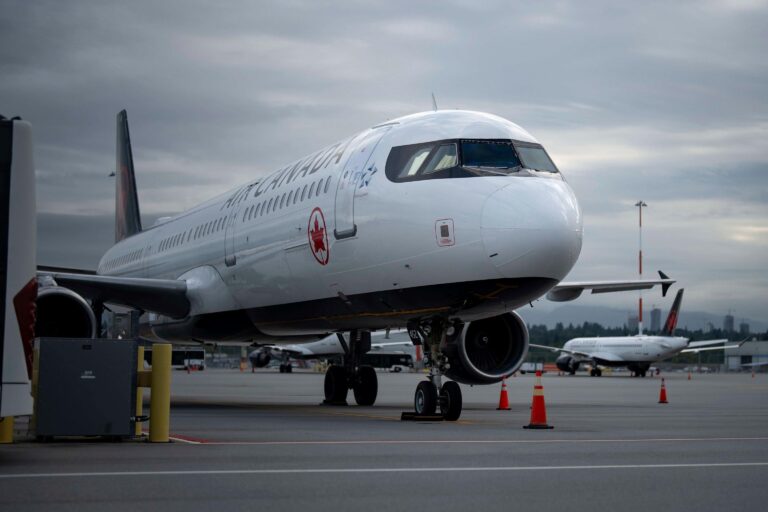Thousands of Air Canada passengers continue to face significant disruptions amid an ongoing strike that has brought the airline’s operations to a standstill. Despite efforts to resolve the labor dispute, travelers remain stranded at airports across the country, grappling with canceled flights, limited communication, and mounting uncertainty. As negotiations between the airline and union representatives stall, the ripple effects of the strike are sparking frustration and logistical challenges for both customers and the broader travel industry.
Impact of Air Canada Strike on Passenger Travel Plans and Airport Operations
The ongoing strike by Air Canada employees has led to significant disruptions in passenger travel plans across major Canadian hubs. Thousands of flyers faced last-minute cancellations and delays, forcing many to scramble for alternative flights or accommodations. Airports, particularly Toronto Pearson International and Montréal-Trudeau, encountered unprecedented congestion, with crowds forming at information desks and ticket counters. Customer service agents, overwhelmed by demand, worked extended hours to assist stranded travelers, but frustrations mounted as communication gaps persisted.
Airport operations were also strained, as fewer flights meant fluctuating runway schedules and underutilized gates, complicating logistics for ground staff and air traffic controllers alike. Airlines scrambled to rebook passengers through partner carriers, but options remained limited given the size and scope of the disruption. Below is a snapshot of the impact on passenger volumes and operational adjustments at the affected airports:
| Airport | Average Daily Passengers (pre-strike) | Passengers Affected (strike day) | Operational Notes |
|---|---|---|---|
| Toronto Pearson (YYZ) | 150,000 | 22,000 | Reduced gate assignments, increased queue times |
| Montréal-Trudeau (YUL) | 45,000 | 8,000 | Additional customer service booths deployed |
| Vancouver (YVR) | 40,000 | 7,500 | Flight reroutes via alternate carriers |
- Travelers advised to check airline updates frequently due to rapidly changing flight statuses.
- Airport lounges offering extended access to help weary passengers during long delays.
- Public transit schedules adjusted to accommodate fluctuating passenger flows to and from airports.
Challenges Faced by Stranded Travelers Including Rebooking and Accommodation Issues
Passengers caught in the ongoing Air Canada strike have encountered significant disruptions beyond just flight cancellations. Many have struggled with rebooking turmoils, as demand far exceeds availability on alternative flights. Customer service channels have been overwhelmed, leading to long wait times and often inconsistent information. The difficulty in securing timely replacements has left travelers uncertain about their plans, with some reporting multiple failed attempts to alter their itineraries through both online portals and call centers.
Accommodation troubles have further complicated the scenario for those stranded away from home. With flights postponed or canceled last-minute, the sudden need for hotels has put travellers in a bind – especially in popular or remote locations where lodging options were already limited. Those with no pre-arranged stays faced inflated prices and limited availability. Airlines have offered varying degrees of compensation or assistance, but many affected passengers feel the support remains insufficient.
- Extended hold times: Up to several hours on customer service lines
- Online booking glitches: System crashes and error messages common
- Last-minute cancellations: Leaving few options for immediate accommodation
- Inconsistent refund policies: Confusing communications on eligibility
| Issue | Impact | Passenger Feedback |
|---|---|---|
| Flight rebooking delays | Confusion and prolonged travel times | “Waiting days for alternate flights.” |
| Accommodation shortages | Increased out-of-pocket expenses | “Had to book expensive last-minute hotels.” |
| Customer service bottlenecks | Frustration and misinformation | “Call reps gave conflicting details.” |
Strategies for Passengers To Navigate Delays and Secure Alternative Arrangements
When faced with unexpected delays amid the Air Canada strike, passengers are urged to remain proactive in exploring all available options. First, reaching out directly to the airline’s customer service, either via phone or social media channels, can sometimes yield rebooking offers or refunds. Utilizing mobile apps and websites that monitor real-time flight status updates helps keep travelers informed of sudden changes. Furthermore, passengers should consider alternative airports or nearby cities for departure or arrival, as rerouted flights might be available there sooner.
Additional tactics include:
- Checking with credit card providers about travel protection policies that may cover strike-induced disruptions.
- Exploring travel insurance for potential compensation or coverage on accommodations and transport.
- Coordinating with fellow travelers through online forums or social media groups dedicated to Air Canada passengers for shared information and possible ride-sharing solutions.
| Option | Benefits | Considerations |
|---|---|---|
| Rebooking Flights | Maintains direct travel plan | Limited availability; may require long waits |
| Alternative Airports | More flight options; possible faster routes | Additional ground transportation needed |
| Travel Insurance Claims | Financial protection; covers unexpected costs | |
| Travel Insurance Claims | Financial protection; covers unexpected costs | May require documentation; claim process can be lengthy |




